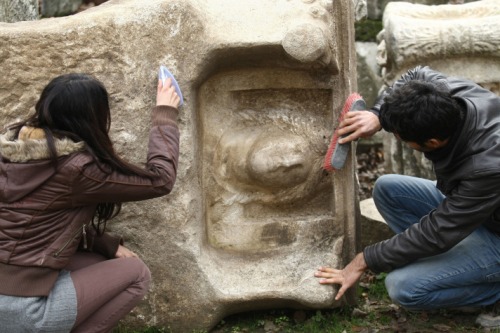'via Blog this'
Bust of king from Hellenistic Period found in Turkey
The country of Turkey now occupies the territory of ancient Asia Minor. It is filled with Greek and Roman ruins — especially in the western area and along the Mediterranean coast. Archaeological excavations are active in the country.
Today’s Zaman, a Turkish newspaper, reported on January 4 the discovery of the relief bust of a king from the Hellenistic period. We are given no hint regarding the identity of the king. We know that Alexander of Macedon crossed Asia Minor in the 4th century B.C. From that time the Greeks had a great influence on the country. Later, in the Roman period this would be the territory visited by Paul on his preaching journeys.
Today’s Zaman says,
A 2,000-year-old relief bust of a king was discovered during excavations in ancient Stratonikeia in Muğla’s Yatağan district.
Dr. Bilal Söğüt, a professor of archeology at Pamukkale University and head of the excavations, told the Anatolia news agency that they found a street in the ancient city which began with a gate and was lined with columns. During their excavations, they also discovered the bust of a king dating back to the Hellenistic period. The bust, which is one-and-a-half meters tall and nearly two meters wide, features depictions of bull heads and the figure of a goddess, Söğüt said.
“The depictions of bull heads on the bust represent wealth and power. It was in this region that we previously found a racing chariot. The discovery of 1,500-year-old mosaics here was another welcome breakthrough for us,” he said.
Stratonikeia is located in the southwestern region of Turkey. The excavation is under the direction of professor from Pamukkale, a site known as Hierapolis in the New Testament (Colossians 4:13).


No comments:
Post a Comment